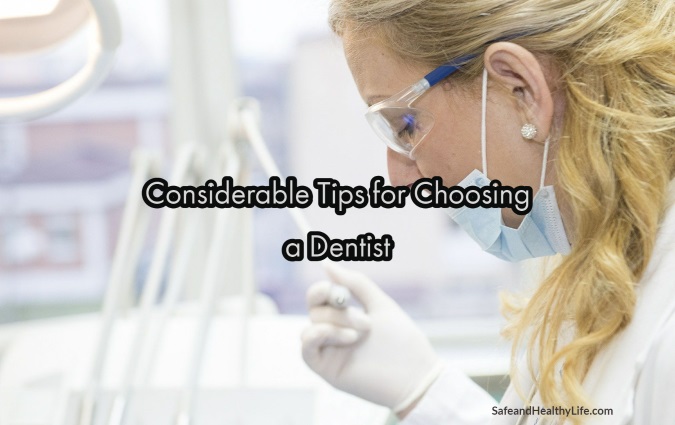
Are you looking for a Dentist in San Diego?
Nowadays, the harmonic smile is desired by everyone, and some oral problems can cause self-doubt and even depression in people.
Therefore, keeping your teeth free of bacteria and worrying about aesthetics and oral functions matters to have a healthy life, socialize, and improve your overall well-being.
Most dental services are not covered by basic insurance. Patients have to take out additional insurance or pay for the services out of their own pocket. It is all the more important to know what is important.
How do I find a good dentist?
- Check whether the dentist is listed in a doctor’s directory or official register and has the required qualifications (including the cantonal professional license).
- Make sure you have well-kept furnishings and modern equipment.
- For complicated cases, look for a specialist dentist with additional training in orthodontics, implantology, or other relevant additional qualifications.
- Make sure that the practice rooms, equipment, and work clothing, including disposable gloves and face masks are hygienic and sterile. Equipment and tools should be sterilized, and gloves changed after each patient.
- Ask for an informative consultation before an operation.
- Look for a doctor without bold advertising (e.g., advertising with low prices).
- Let acquaintances and friends recommend a dentist to you.
Can I trust inexpensive dentists?
There is no general answer to this question. You can use the tax point value to compare costs. If the values are more than +/- 10 percent apart, you should check further clarifications (training, professional license, public reports).
Very cheap dentists can indicate poor quality (see section How dubious dentists gamble off patients? ).
In sum, cheap treatments with corrections and improvements can be more expensive than treatment by a dentist with a higher tax point value.
How do dubious dentists rip off patients?
- Large down payments: Patients are asked to make a down payment before major treatments. Usually, clients pay up to a third for larger treatments. If you are asked to pay a deposit, you should critically examine an alternative again.
- Bungle: Low prices suggest reduced quality or safety. Perhaps the practice staff’s quality and hygiene are inadequate, the practice staff is poorly paid, and the dentists’ training is inadequate.
- Unnecessary treatments: Holes are often drilled where there are none. If necessary, have x-rays shown or get a second opinion.
- Incomplete cost estimate: The amount in Swiss francs alone says little about the treatment’s type and effort. You need to know what and how the treatment is done. At most, it takes a diagnosis, x-rays, and pretreatment. If in doubt, you should obtain a second opinion or a competitive offer.
- Imported products: Dental prosthesis products such as bridges, crowns, etc. are partly imported from cheap countries. However, the origin of such products is sometimes not disclosed or declared. Nevertheless, dentists then demand a higher price. Rounded prices are an indication of such an approach. Rounded amounts are not possible due to VAT, which is why this can be an indication of an unlawful surcharge.
As you probably know, your oral health can influence your body’s overall well-being. You probably don’t know is; that general dentistry does more than clean your teeth!
During your routine checkups, your general dentist will evaluate your complete oral health. General dentistry helps prevent cancers, oral infections, and other dental complications.
What do I have to clarify before treatment?
- Get a second cost estimate for larger treatments.
- Check the cost estimate for completeness.
- Even in emergency situations, do not allow yourself to be talked into treatment and ask for time to think about it.
Learn how to care for your teeth and improve your smile !!!
Many people have teething problems, but what most of them don’t know is how to care for their teeth.
Understand, in this text, why oral hygiene care is important to maintain the health of the body and understand what to do to have healthier habits.
Why does taking care of teeth impact the health of the body?
Anyone who thinks that having oral care is just an aesthetic concern is wrong. Considered the largest body cavity, it is through the mouth that microorganisms and bacteria enter, which can harm other organs and compromise the functioning of the teeth, gums, and tongue.
In addition, oral functions are associated with breathing, speech, and chewing, which indicates that the lack of hygiene in the area leads to serious problems, which may even trigger diabetes, compromise the cardiac part and severely increase the possibility of infarction.
To give you an idea, patients with poor oral cleanliness usually have problems such as caries, gingivitis (gingival inflammation), bad breath, and bacterial plaque (a colony of bacteria usually between the gum and the tooth that, after turning into a hardened plaque, leads to tartar). To avoid headaches, keep a daily brushing and see the specialist frequently.
What are useful tips to follow to maintain oral health?
You understand how the body depends on the health of the mouth since there are essential functions such as chewing.
However, what tips to follow to have healthier habits with teeth cleaning?
The answer is simple and comprises these five steps: consultation with a trusted dentist, updated exams, healthy and regulated food, daily brushing, and flossing.
Consultation with a specialist
Even if you brush daily and maintain your mouth’s hygiene, it is necessary to consult with a specialist every six months or annually.
General dentistry does more than clean your teeth, general dentistry helps prevent oral infections, cancers, and other dental complications.
The dentist has the appropriate training to detect problems and come up with the most appropriate treatment for you to maintain oral function and aesthetics.
Up-to-date exams
The previous item brings us to this: the exams detail oral health and are important for the specialist to give an accurate diagnosis and suggest an appropriate treatment for the patient.
In general, the analysis takes place both by consultation and by radiographs and tomographies, which map the oral functions and are essential to observe details not visible in the clinical examination.
Food
Did you know that food influences the health of your mouth?
In addition to cavities, a poor diet is responsible for triggering various oral diseases, as foods rich in sugar, starch, and carbohydrate content help in the proliferation of acids that corrode tooth enamel.
However, if you are unable to change your eating habits, it is best to consume products of this type during meals, which prevents food debris from getting between your teeth.
Despite this, the ideal is to maintain balanced nutrition, at fixed times, to achieve a functional and aesthetically beautiful smile.
Brushing
Brushing after meals is undoubtedly one of the habits that maintain your oral health.
Do you know how many times you should do this?
To remove the doubt, the American Dental Association’s recommendation is to do the brushing with movements that are not very prolonged and smooth three times a day for 2 minutes.
Likewise, it is indicated that the brush has soft bristles and is ahead in size that reaches the mouth’s internal areas. Another detail that involves the tool is its exchange, which must be done after the tool is worn out.
Daily, clean the area between your teeth, gums, and tongue to prevent the proliferation of bacteria.
Dental floss
It is not enough to have a good brushing to be free of problems in the mouth. To keep your health up to date, don’t forget to floss after cleaning with the brush.
The utensil is able to clean the places that the brush does not reach easily and is an important method to eliminate plaque at home.
In this sense, the tool (which should never force the gums, being used very gently so as not to cut the region between the teeth) greatly reduces the risk of some diseases, such as the periodontal, which can lead to the loss of bone tissue.
Never forget that General dentistry does more than clean your teeth; it’s about your whole well-being.
When’s the last time you visited your dentist in San Diego?
Don’t wait to make that next appointment!
About The Author:
Ann Lewis enjoys the art of writing and has experience in various spheres of the craft. By blending information, with advice and impromptu jokes, she writes articles that not only have something to teach but are also light, and easy to read.




